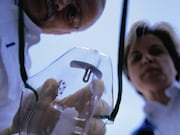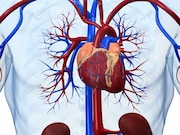Operator-Directed Sedation Seems Safe in Peds Cardiac Cath
ODS is not associated with increased risk for adverse events among carefully selected patients
Very Low LDL-C, Triglycerides Tied to Hemorrhagic Stroke Risk in Women
Women with very low LDL or triglycerides should be monitored for other modifiable stroke risk factors
Stress-Related Disorders Associated With Increased CVD Risk
Hazard ratios for cardiovascular diseases decreased beyond one year after disorder diagnosis
Domestic Responsibilities Tied to Physician Mothers’ Satisfaction
Being responsible for at least five tasks linked to desire to change career for moms in procedural specialties
Cardiac-Specific Comorbidity Index Beats Generic Indexes
Cardiac-specific index outperforms other indexes for predicting in-hospital mortality, length of stay
Haptoglobin Expression Tied to Outcomes in Preterm Newborns
Worse outcomes in preemies lacking haptoglobin who were exposed to inflammation in utero
Same Services More Expensive in Outpatient Than Office Settings
2009 to 2017 also saw increase in proportion of services performed in outpatient settings
People With Obesity Are Blatantly Dehumanized
Dehumanization predictive of support for policies that discriminate against people with obesity
Cardiovascular Mortality Lower With Medicaid Expansion
Lower cardiovascular mortality rates seen for middle-aged adults in states that expanded Medicaid
Dietary Supplement Use Not Linked to Mortality Benefits
Excess calcium intake may increase risk for cancer death; link related to supplemental calcium intake



















